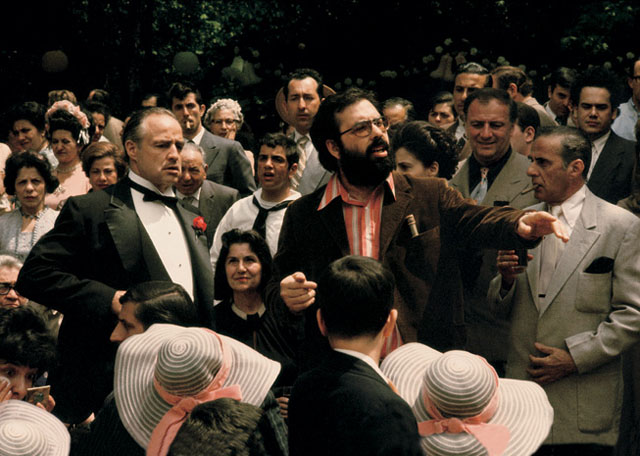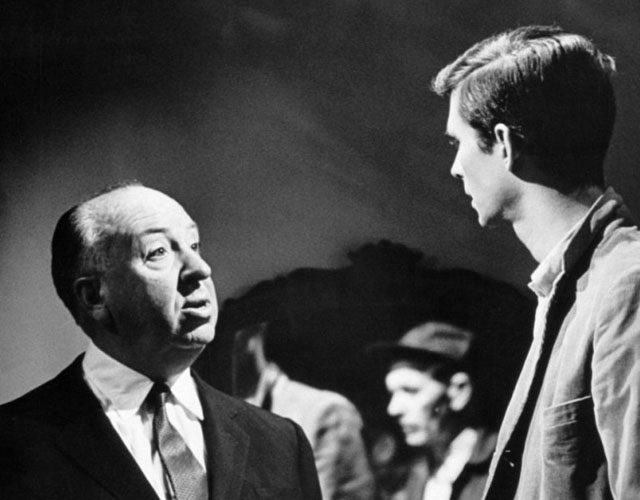“Arriving the same year as Francis Ford Coppola’s The Godfather Part II and The Conversation and one year ahead of Robert Altman’s Nashville, Chinatown [1974] came at the height of [producer Robert] Evans’s power and at the peak of the American moviemaking renaissance bookended by Bonnie and Clyde and Jaws.” Scott Foundas in the Voice: “Altman’s, Coppola’s, and Polanski’s films, plus a dozen more from that risk-taking decade, are now the subject of a month-long retrospective at the Museum of the Moving Image [Paramount in the 1970s]—a lineup that suggests Paramount had its ear especially close to the ground of the ‘New’ Hollywood. The series also includes acknowledged classics like The Godfather (1972), Harold and Maude (1971), and Paper Moon (1973) alongside lesser-known gems like Elaine May’s A New Leaf (1971) and Peter Yates’s hard-boiled The Friends of Eddie Coyle (1973). Not a comic book adaptation among them.”
Scott’s piece is far more than a survey of titles lined up for the series. For his brief history of a studio at its prime, talks with Peter Bart, who recalls his days at Paramount in “his raucously entertaining recent book,” Infamous Players: A Tale of Movies, the Mob (and Sex), as well as with Peter Bogdanovich and Coppola.
Speaking of whom. “So what is it about Coppola’s pair of iconic films from 1972 and 1974 (let’s just forget it’s technically a trilogy for the time being) that have made them such widely agreed-upon selections for canonization, besides their enormous financial success?” asks Reverse Shot co-editor Michael Koresky. “Maybe it’s the simultaneous star-at-sunset presence of Marlon Brando as Vito Corleone and the star-is-born narratives of Al Pacino as Michael and Robert De Niro as young Vito that cement the films as something of a Hollywood passing of the torch. Or it could be that, despite their specific focus on one crime syndicate, The Godfather films are astonishingly expansive, becoming a narrative of the first half of the American twentieth century, maybe Hollywood’s most vivid tale of immigrant life, and its most harrowing expression of the effect of wealth and capital gain on basic human decency.”
As a followup to yesterday’s mentions of the BAMcinématek series Tangerine Dreams, let’s note that, for the New York Times, Nicolas Rapold talks with Edgar Froese, a founder—and still a member—of Tangerine Dream, as well as with another demigod of the New Hollywood of the ’70s: “Appropriately enough, the band’s first soundtrack for Hollywood was for a remake, Sorcerer, William Friedkin’s 1977 sweat-stained, dread-filled take on the 1953 art-house standard The Wages of Fear…. Mr. Friedkin first encountered the group’s music while in Europe for premieres of The Exorcist, at a concert in an unlit church in the Black Forest. ‘I’d never seen anything like that,’ Mr. Friedkin said. ‘They played one long piece of music that sounded like a combination of Jimi Hendrix and Stockhausen…. The whole notion of the film I later made came that evening. I started to see the images of the movie that ultimately became Sorcerer.”
One last New York-centric note. For the Film Society of Lincoln Center, R. Emmet Sweeney looks back on last month’s edition of Migrating Forms.
Los Angeles. The Academy has announced its lineup for a Monday evening summer series, The Last 70mm Film Festival, opening on July 9 with It’s a Mad, Mad, Mad, Mad World (1963) and featuring “a new print of Spartacus and rarely screened 70mm short subjects.”
London. With the BFI’s Genius of Hitchcock extravaganza (screenings, gala events, the works) getting underway—it’ll be on through October—Time Out London has asked ten directors for a few comments on their favorites. Some of these comments are spare, but still, you’ve got Joanna Hogg on Suspicion (1941), Stephen Frears on Notorious (1946), Joe Wright on Strangers on a Train (1951), David Cronenberg and Mike Leigh on Rear Window (1954), John Carpenter and Kenneth Branagh on Vertigo (1958), Friedkin on North by Northwest (1959), Ben Wheatley on Psycho (1960), and Mark Cousins on Marnie (1964).
For news and tips throughout the day every day, follow @KeyframeDaily on Twitter and/or the RSS feed. Get Keyframe Daily in your inbox by signing in at fandor.com/daily.





